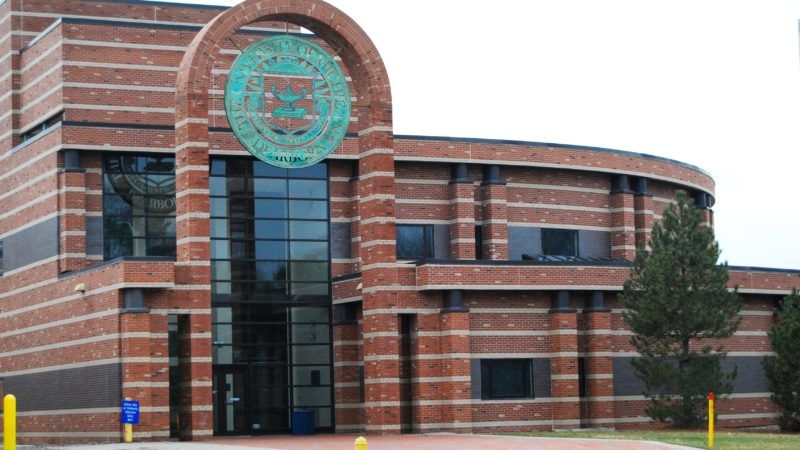University's Center for Social Justice and Inclusion Hosts Race-Segregated Virtual Events
University of Michigan-Dearborn offers one discussion space for students of color, and another for whites.

The University of Michigan-Dearborn's Center for Social Justice and Inclusion states that its mission is to "celebrate the uniqueness" of each student and "remove barriers" to full participation in campus life. But this laudable goal would appear to be at odds with the actual practices of the center, which include hosting race-segregated virtual events.
This week, the center advertised an online discussion session for "students that do not identify as people of color"—white students, in other words. A separate event—for students who are black, indigenous, or people of color (BIPOC)—is also on the calendar.
The non-POC event is billed as "a space for students that do not identify as persons of color to gather and to discuss their experience as students on campus and as non-POC in the world."
"Feel free to drop in and discuss your experiences as non-persons of color and hopefully brainstorm solutions to common issues within the non-POC community," wrote the organizers. "The Cafe will be facilitated by a non-POC faculty/staff member to ensure that discussions are kept safe and respectful."
Presumably, the BIPOC event is described similarly, but with a BIPOC moderator instead. (I can't access the web page for this event: It's as if UM-Dearborn's website somehow knows I'm a white person.)
Update! Seems like @UM_Dearborn has two cafes. Competing cafes. I get the intention but this was not thought out and very lazy. pic.twitter.com/BqTFy8rXN6
— Abed A. Ayoub (@aayoub) September 9, 2020
Public university events that are specifically tailored to students of a specific race or gender sometimes draw legal challenges, since federal law generally prohibits discrimination in schools. The American Enterprise Institute's Mark Perry, a professor at the University of Michigan's Flint campus, filed a civil rights complaint against Michigan State University's women-only study lounge, for instance, which prompted the university to open the space to all. Perhaps someone at Dearborn thought the solution to the potential legal problem of POC-only events was to also have whites-only events. I emailed the center to ask whether they had inadvertently reinstated the separate-but-equal doctrine, and will update this article if I hear back.
In any case, if students wish to freely associate into identity-based groups, that is their right. University administrators, though, should host discussions on issues of identity that are open to all students, regardless of their ethnicity. This is the best way to foster racial harmony on campus, and it's consistent with Title VI of the Civil Rights Act.
Show Comments (88)